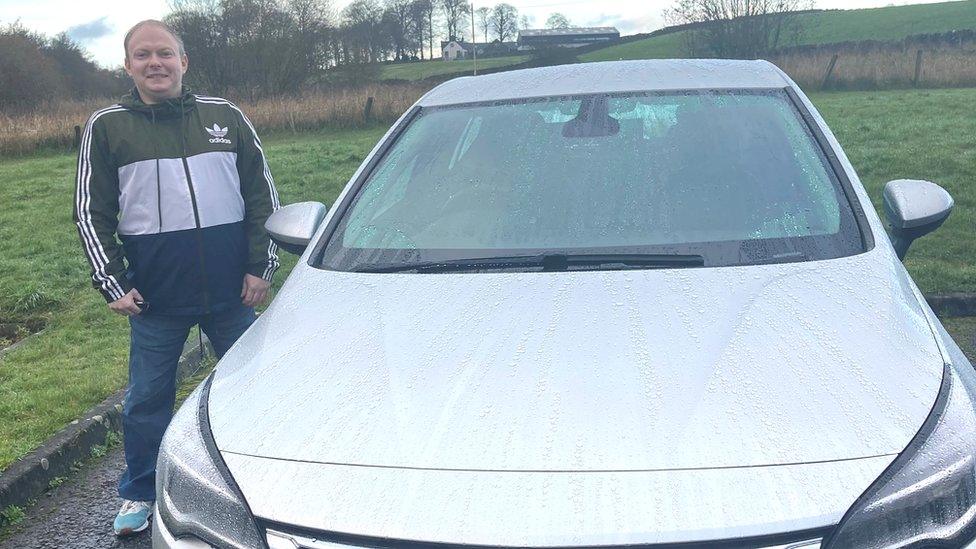Disabled Dumfriesshire driver makes electric charging point plea
- Published

Mr Gale is due a new car next year and would like to make it an electric one
A man with a rare muscle-wasting condition says poor electric vehicle infrastructure risks seeing disabled people being "left behind".
David Gale, 38, from Templand near Lockerbie, has Becker muscular dystrophy.
He said he would like to make his next car an electric one but said too many charging points were unsuitable.
Transport Scotland said ensuring accessibility for all was a "core part" of the Scottish government's approach.
Mr Gale said some charger bays were too small to allow him to open a door to get into a wheelchair.
He also cited the lack of dropped kerbs and the chargers, charging sockets and cables being too high or too heavy as other issues.
Mr Gale's condition causes muscles to weaken and waste over time, leading to increasing and often severe disability.
He requires assistance with mobility and currently drives an adapted Vauxhall Astra.

David Gale said many electric charging points were unsuitable for disabled drivers
He is due a new vehicle next year under the Motability scheme and would like it to be an electric one but has concerns about infrastructure.
"I don't want to be desperately needing to charge my car only to reach a charging point that I can't use because it hasn't been designed with disabled people in mind," he said.
"It feels like I'm being discriminated against.
"All charging points should be accessible in the first place, otherwise decades down the line more money will have to be spent to correct them.
"As the 2030 ban on the sale of new petrol and diesel cars approaches, it is imperative that disabled people aren't left behind."
Robert Burley, of Muscular Dystrophy UK, said Mr Gale's situation highlighted how often disabled people were treated as an "afterthought".
'More accessible'
Transport Scotland said all chargers supported by the Scottish government had to meet the requirements of its good practice guide.
It said that meant that installations should take account of duties set out in the Equalities Act including issues such as markings and dropped kerbs.
Transport Scotland added that it was working in partnership with Scottish Enterprise to improve the design of electric vehicle charge points to make them "even more accessible".
It is also working with the Department for Transport, Motability and the British Standards Institution on the development of accessible vehicle charge point standards.
A set of advisory standards is due to be developed by summer next year providing specifications for installers and operators in Scotland and across the UK.